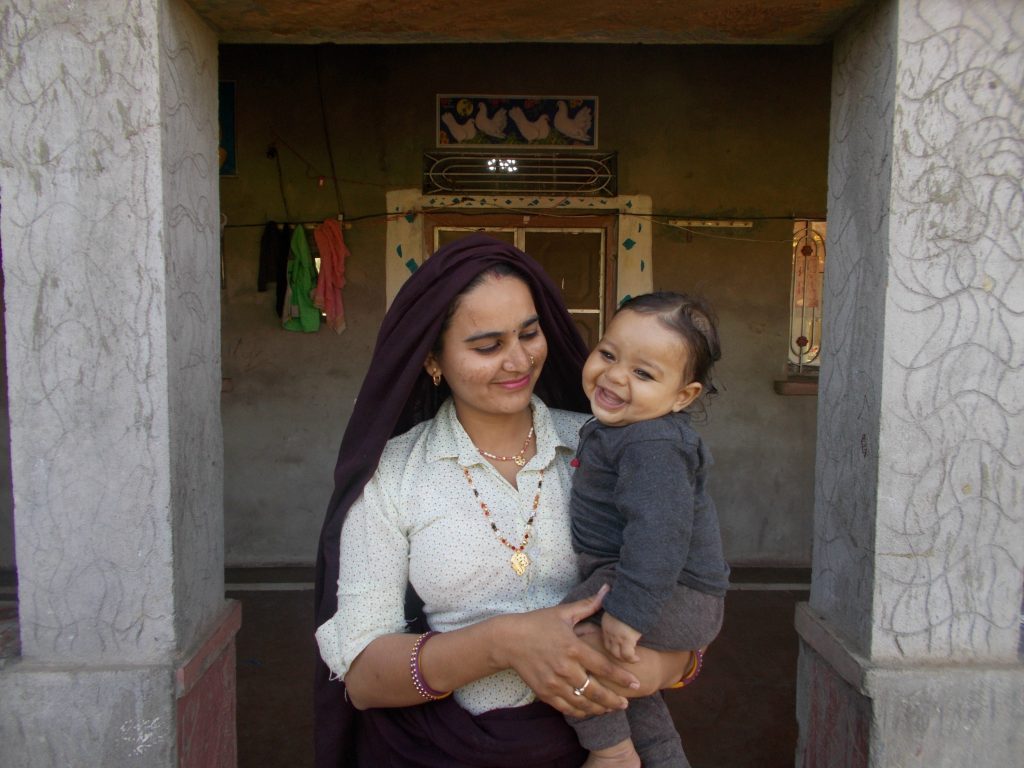
Karauli, India—Twenty women gave birth during a busy 12-hour shift at the district hospital in Rajasthan state on this summer night in May. But the delivery that remains memorable for Nurse Sarika was the birth of Mantosh Singh’s baby—memorable, because her newborn son wasn’t making a sound. Nurse Sarika knew she had to act quickly. For newborns suffering from asphyxia, health care providers understand the importance of “the golden minute”—the crucial 60 seconds after birth during which newborns need to be resuscitated to avoid long-term complications or even death. Failure to breathe at birth accounts for as much as 20% of all neonatal deaths in India.
Nurse Sarika hurried to dry the baby and clamp and cut the cord. Then she laid the baby in a radiant warmer to maintain his temperature. As the baby was still not breathing she immediately positioned the baby to open his airway and performed a quick suction to remove any airway obstructions. She vigorously rubbed him to stimulate his breathing, but the baby still didn’t breathe. So she started bag and mask ventilation and kept a close watch on the newborn’s chest and skin color.
The newborn started to turn pink. Moments later, he let out his first cry, a sound his mother may never forget. Nurse Sarika called her newborn team for help, and the baby was transferred to their care for close observation.
“I cannot even express the happiness I felt when I saw the baby turn pink that night. I was overwhelmed with joy as I was able to save his life,” Nurse Sarika said.
Dr. Ram Chahar, Senior Program Officer in Jhpiego’s India office, also contributed to this article. Dishant Singh, the photographer, is a Program Associate in the India office.



